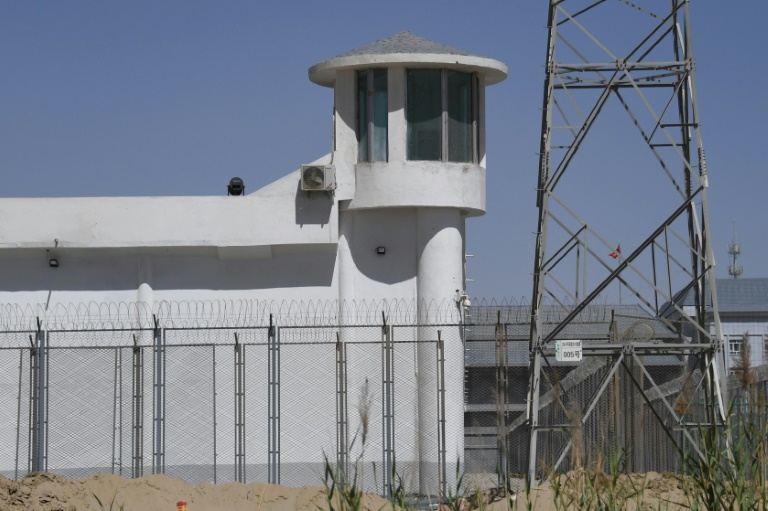Top global brands such as Apple, BMW and Sony have been accused of getting supplies from factories using the forced labour, an explosive allegation that could reverberate in boardrooms across the world.
China is transferring tens of thousands of Uighur detainees out of internment camps and into factories that supply some of the world’s leading brands, an Australian think tank said Monday.
The Australian Strategic Policy Institute said the Chinese government has transferred 80,000 or more Uighurs out of camps in Xinjiang and into factories across the country.
“Uighurs are working in factories that are in the supply chains of at least 83 well-known global brands in the technology, clothing and automotive sectors,” the think tank said.
“Some factories across China are using forced Uighur labour under a state-sponsored labour transfer scheme that is tainting the global supply chain.”
The brands, it added, included “Apple, BMW, Gap, Huawei, Nike, Samsung, Sony and Volkswagen”.
“Companies using forced Uighur labour in their supply chains could find themselves in breach of laws which prohibit the importation of goods made with forced labour or mandate disclosure of forced labour supply chain risks,” the report said.
Read Also: China Expels Wall Street Reporters Over ‘Racist’ Headline
Such firms “should conduct immediate and thorough human rights due diligence on their factory labour in China, including robust and independent social audits and inspections.”
When asked about the report Volkswagen spokesman Nikolas Thorke said: “We are committed to our responsibility in all areas of our business where we hold direct authority.”
“None of the mentioned supplier companies are currently a direct supplier of Volkswagen,” he added.
Huawei said it requires all its suppliers to comply with international standards as well as applicable laws, adding it has seen the report and is looking into the matter.
BMW said it “cannot comment regarding the content” of the report, but told AFP it does a survey for sustainability standards of direct suppliers in its allocation process.
It also poses questions, including those on human rights and working conditions in its purchasing conditions, and direct suppliers are “required to implement our policies with their own suppliers”.
Apple referred AFP to an earlier statement it issued, which said the firm was “dedicated to ensuring that everyone in our supply chain is treated with the dignity and respect they deserve.”
“We work closely with all our suppliers to ensure our high standards are upheld,” the statement said.
China’s foreign ministry on Monday slammed the ASPI report as having “no factual basis”, and accused the institute of attempting to “smear China’s efforts to oppose terrorism and fight extremism in Xinjiang.”
The Xinjiang measures have “achieved good results” and “all participants undergoing anti-extremism education have graduated and achieved stable employment,” foreign ministry spokesman Zhao Lijiang said at a regular press briefing.
An estimated one million mostly Muslim ethnic minorities have been held in internment camps in Xinjiang.
After initially denying their existence, Beijing cast the facilities as “vocational education centres” where “students” learn Mandarin and job skills in an effort to steer them away from religious extremism, terrorism and separatism.
Rights groups and witnesses accuse China of forcibly trying to draw Uighurs away from their Islamic customs and integrate them into the majority Han culture.
Officially, the Chinese government says it is transferring “surplus” Xinjiang labour to other regions in the name of poverty alleviation.
According to official news agency Xinhua, more than 25,000 workers from Xinjiang were slated to be transferred “inland” in 2019.
AFP










